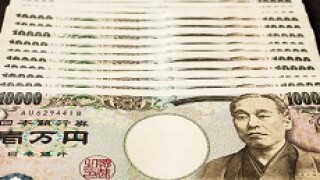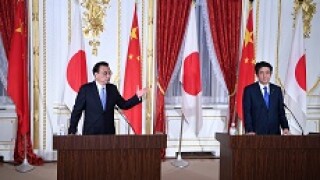Japan
-
The board of directors of Hong Kong Exchanges and Clearing has renewed the contract of chief executive Charles Li for three years.
-
Larry Thompson, vice-chairman of the Depository Trust & Clearing Corp, on Tuesday suggested that populist rhetoric in the US might be overshadowing President Trump's strong choices of leaders in independent financial oversight agencies.
-
The Republic of Indonesia returned to the public yen market on Thursday for a ¥100bn ($913.76m) four-tranche transaction, navigating challenges around emerging markets volatility and its rising dollar bond yields.
-
Regional Japanese banks have been freed up to invest in loss-absorbing senior debt following new guidance on the regulatory treatment of TLAC holdings. The world's largest FIG borrowers will need to move into the yen market quickly to take full advantage of this new but huge source of investment for their bonds, writes Tyler Davies.
-
Lloyds Banking Group sold its largest ever senior deal in the yen market this week, after a new ruling from the Japanese Financial Services Agency unlocked demand from regional banks in the country.
-
Japan receives a renminbi qualified foreign institutional investor (RQFII) investment quota, People’s Bank of China chief backs greater liberalisation of domestic financial sector and RMB exchange rate, and the central bank outlines key objectives for RMB internationalisation in 2018.
-
Green bonds have become one of the hottest topics in finance, taking their place alongside project finance and China’s Belt and Road as the necessary buzzwords on every investor’s lips. But green financing is more than just a passing fad for Japan’s strongest issuers. In a market defined by a famously rigid investor base, they are attempting to build a market that can be sustainable in every sense of the word. GlobalCapital sat down with some of Japan’s leading issuers, analysts, bankers and policy bankers to discuss where green and social financing is heading.
-
It might be easy to imagine that Japan’s top credits have an easy time accessing the international bond market. Compared to high yield or debut issuers, that may be so. But a strong rating and an important role in public policy bring with them certain responsibilities — not least of which is keeping funding costs down. The rise in dollar interest rates, and the volatility that is sure to result, thus represents a conundrum for these issuers. What is the right price for a dollar bond? What is the correct attitude to maturity adjustment? GlobalCapital asked these and other questions during a roundtable discussion that took place in Tokyo shortly before the end of the fiscal year on March 31, 2018.
-
Japanese investors’ desperation to boost their yields is helping them shed an ultra-conservative image that has long defined them. The move is overdue but as more international borrowers turn to the yen markets for funding, the increasing flexibility of the buy-side is helping to usher in new structures and international standards. Rashmi Kumar reports.
-
Japanese issuers are tapping the international bond market in droves, pushing volumes to a record in 2017. The market is set to get a further boost this year, as more corporations enter the fray. Rashmi Kumar reports.
-
Vietnam’s Nghi Son 2 Power, which counts Japanese trading and investment conglomerate Marubeni Corp as one of its investors, has raised a $1.869bn project loan from a group of mainly Japanese lenders.
-










